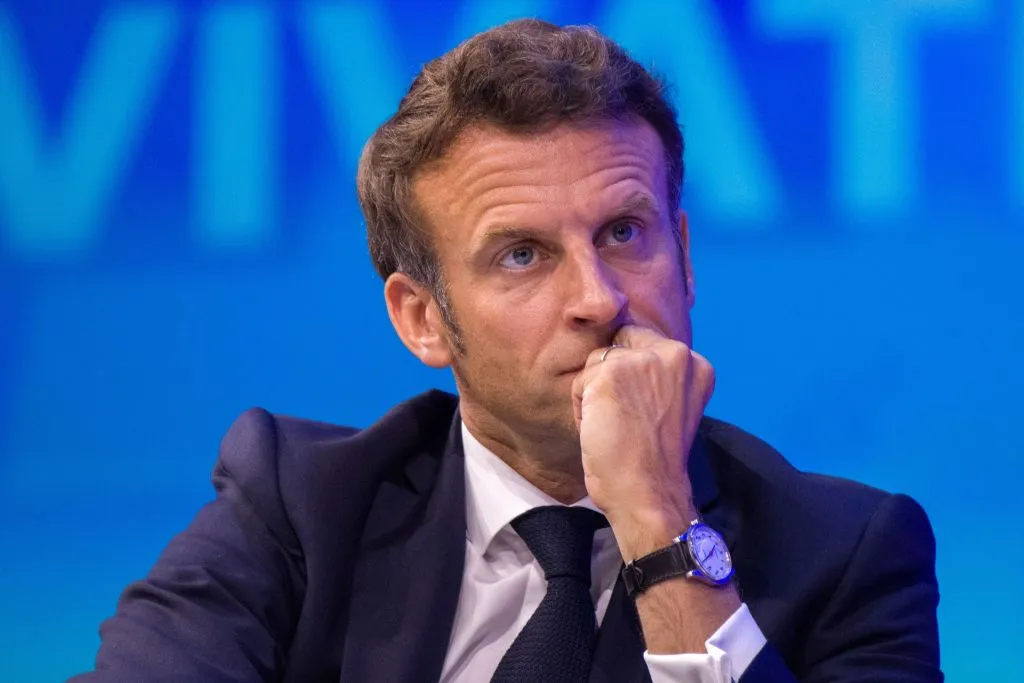Emmanuel Macron’s party lost its majority in Parliament in the French elections that ended on Sunday (June 19), barely two months after he was re-elected to a second term as President.

Exit surveys projected a tough battle for Macron’s Ensemble coalition of centrist parties, but it was still expected to win more than half of the seats, especially after he became the first French President to win re-election in over two decades.
In France, presidential and parliamentary elections are held at different times. Members of the National Assembly, the country’s 577-member lower house of Parliament, are elected in these elections. The elections are direct, which means that voters in each constituency chose their representatives directly.
The presidential elections are also direct, which is why some have been astonished by the shift in power dynamics so quickly following Macron’s re-election in April. The results were dubbed a “democratic shock” by French Finance Minister Bruno Le Maire.
With 245 MPs in the National Assembly, Macron’s alliance remains the largest, but it falls well short of the required majority of 289. To pass his proposals, he will need the cooperation of other coalitions and parties. The government is aware of this; Le Maire stated that if other countries’ cooperation is insufficient, “this would obstruct our ability to change and defend the French.” Some have speculated that if Macron’s plan is unable to be implemented, he may seek hasty elections.
Rising inflation has been a big issue for voters in the two months since Macron’s election, but voter indifference and abstention have also been visible. According to the BBC, the voting rate was roughly 46%, implying that more than half of the voters did not exercise their right to vote.
The legislative mix includes five main partnerships, one of which is the President’s own. Macron’s centre-right La République En Marche! (LREM) party, which he formed in 2016, leads the largest alliance. Its fundamental objective includes proximity to the EU and economic liberalism.
The left-wing New Ecologic and Social People’s Union (NUPES), led by Jean-Luc Mélenchon, a vocal opponent of the President, is the second largest coalition. He is unlikely to embrace Macron’s liberal economic policies, thus while Macron wants to raise the retirement age from 62 to 65, Mélenchon wants it to be lowered to 60.
According to reports in the European press, Macron is most likely to approach the Les Republicans (LR), a center-right party with which LREM has the greatest common ground.
Marine Le Pen, who lost to Macron in the presidential election in April, is also having a good year, with her party sending 89 candidates to the lower house of Parliament, the most in its 50-year history.
Mélenchon’s party is now the second-largest in Parliament, and he has previously stated that, given the size of France’s economy, it could effectively negotiate not to accept EU orders if its interests were jeopardised, according to Reuters.
“France has a lot of clout in Europe.” It accounts for 18% of the European economy. It’s not like (Alexis) Tsipras’ Greece, which bargained with 2% of the European economy,” Adrien Quatennens, a prominent member of Mélenchon’s party, told Franceinfo radio. Tsipras, the current leader of Greece’s opposition, served as Prime Minister from 2015 to 2019, during which time he signed a bailout agreement with lenders that included tough austerity measures.
Macron, Le Pen, and Mélenchon have all expressed doubts about the US-led Western coalition’s policy of isolating Russia, thus there may not be any big changes in France’s attitude on the conflict in Ukraine.
However, the presence of strengthened centrists, strong leftists, and extreme rightists in the lower chamber will make it difficult for Macron to reach an agreement on a variety of contentious subjects.

